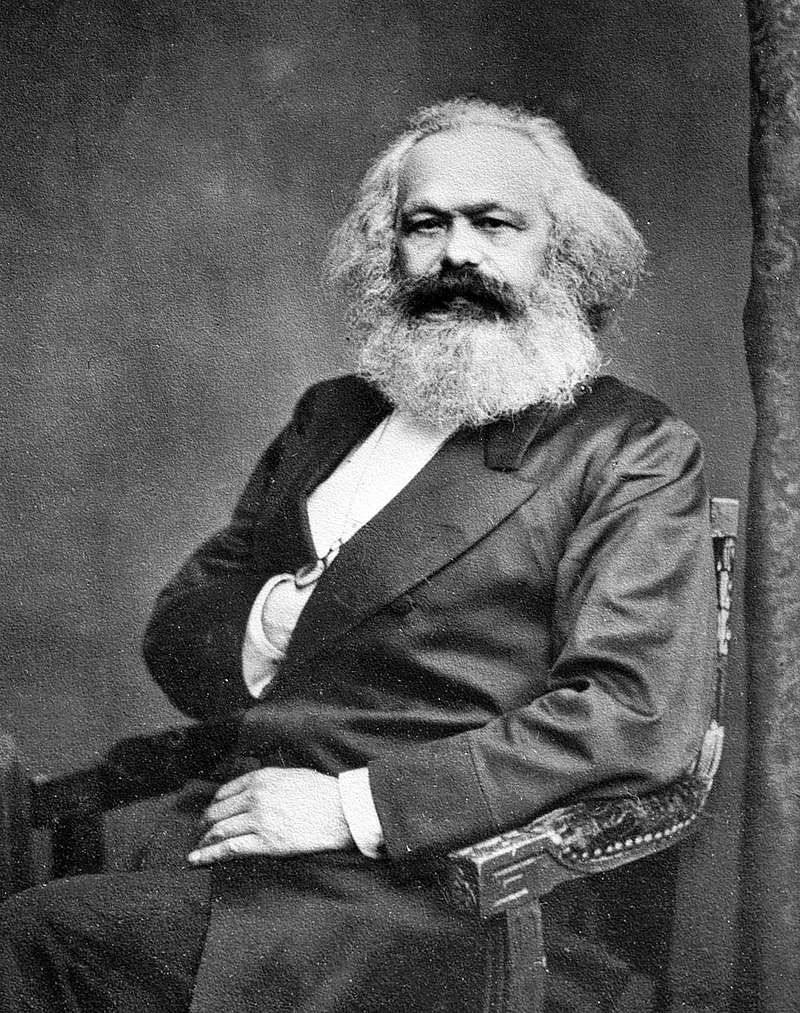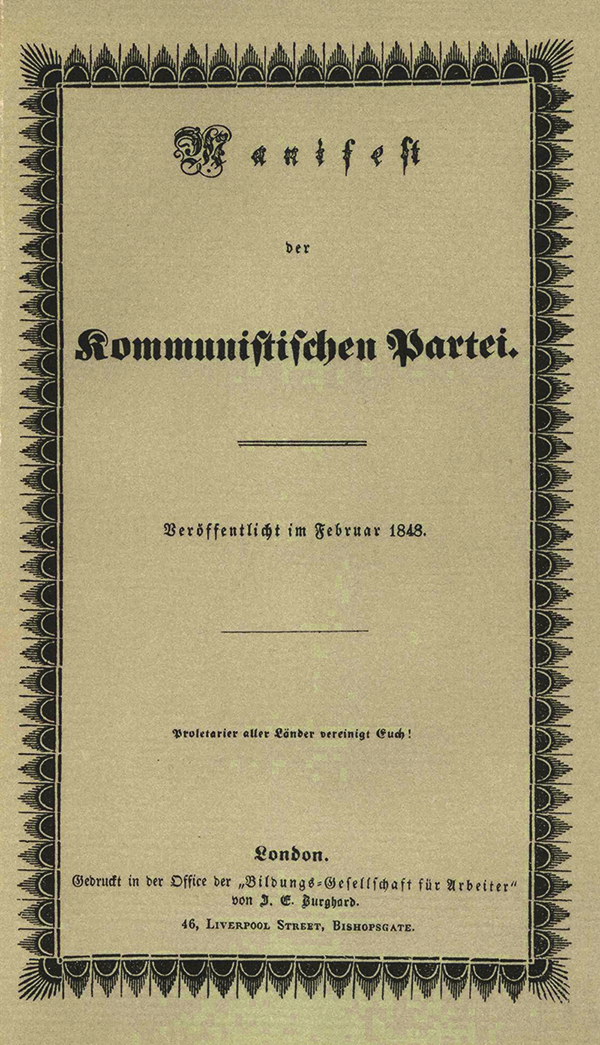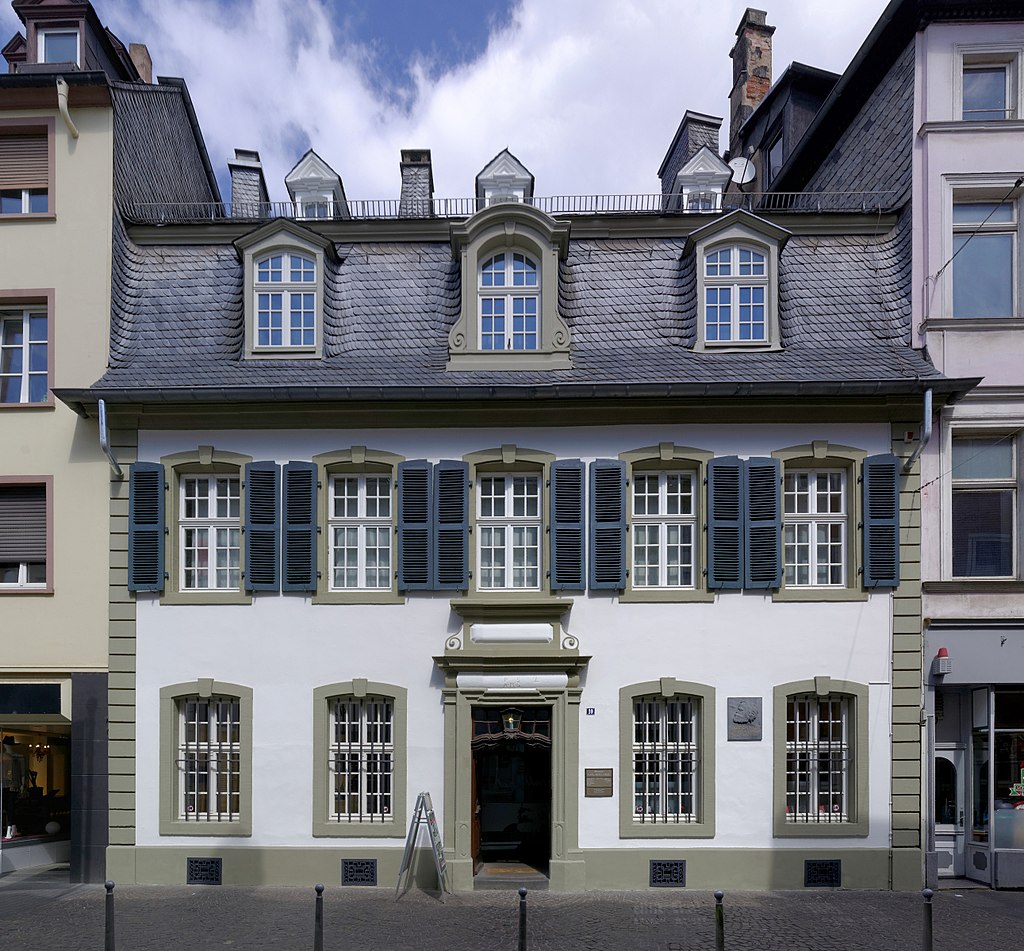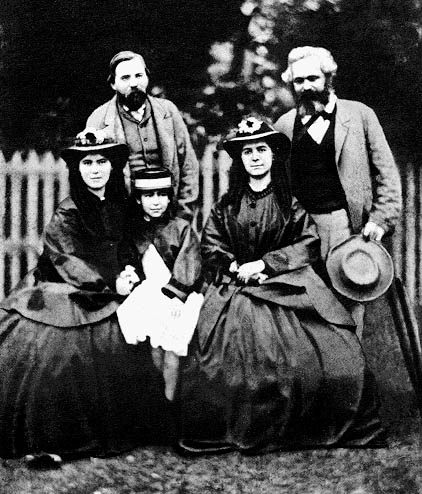200 years on, why Karl Marx was right
by Paul Sutton
In Trier in Germany, where he was born on 5 May 1818, and where he lived for the first 17 years of his life, the 200th anniversary of the birth of Karl Marx’s was marked by major events and significant media coverage. In London, where he lived for twice that number of years, the anniversary went practically unnoticed, with just a few lines of press coverage in some newspapers and practically none in the electronic media.
Marx would not have been unduly surprised since he had drawn the conclusion from many years work with British trade unionists in the First International that the English lacked ‘revolutionary fervour’. By contrast, he saw German progressive thinkers as more ideologically advanced but held back by the slower development of capitalism in Germany compared to the UK. British trade unionists were leaders in class struggle but lacked theory; the leaders of the German working class knew theory was important but lacked depth in the practice of organised class struggle. To make a revolution theory and practice had to come together. Marx’s life was a living statement of this truth.
THEORY
Marx is best known as a theorist, the author (sometimes with Engels) of more than thirty books, studies, lectures and addresses published in his lifetime and half that number written but not published until after his death. In addition, he wrote insightful political commentary, principally for German publications but also as a contributor to the New York Tribune.
Marx did not find writing theory easy since he was constantly revising his work, sometimes to the extent of writing completely new drafts to include new research. That is why only the first volume of Capital (1867) was published in his lifetime, the others were written in part or as extensive research notes and published by Engels after Marx’s death. Other manuscripts remained unpublished until as late as the 1930s.
It is therefore important to see Marx’s thinking as a continuing development which began with criticisms of philosophy and religion and moved on to politics and economics, encompassing all these elements within an approach that emphasised political economy as the key to understanding historical and contemporary change.
As such, concepts such as ‘alienation’ which Marx identified in the early 1840s were revised and given new meaning as his understanding of capitalism developed. Similarly with ‘class struggle’ and the historical development of capitalism as outlined in The Communist Manifesto published in 1848. Or even later still a more sophisticated interpretation of ‘surplus value’ than set out in earlier works.
Marx is therefore not easy to read since there are many sources feeding his thinking and many reformulations of earlier ideas and concepts. There is no simple formulation of his thought although he, as well as many since, have pointed to the ‘Preface’ to A Contribution to the Critique of Political Economy published in 1859 as setting out his ideas succinctly. In it he sets out the main elements of ‘the materialist conception of history’ which emphasises identifying the mode of production and how it is changing as the key to understanding economic and social change. This he thought could be identified with some precision and scientifically. By contrast, politics and other ideological forms were more difficult to determine although ultimately subordinate to economic and social change.
However there is much more to Marx than his ‘materialism’ and there have arisen in consequence many interpretations of what he wrote, some of which were codified into academically inclined ‘schools of Marxist thought’ or nationally based ‘Marxisms’ allied to various communist parties.
Marx loved controversy and no doubt he would have dismissed as ignorant and unfounded much of what was said by others to be ‘Marxist’. However, what is clear from his theoretical contribution is his belief that his approach as it finally emerged was in some sense ‘scientific’ and thus capable of being applied by others if understood correctly.
It was this that distinguished it from other forms of socialism under discussion at the time and especially French socialism which was rooted in experiences derived from the French Revolution. And it was this approach which his closest collaborator Engels sought to promote in his later commentaries on and development of Marx’s theoretical work. Finally it was also this element which was later emphasised by the communist party in the Soviet Union in its presentation of Marxist theory as ‘scientific socialism’.
PRACTICE
‘The philosophers have only interpreted the world, in various ways: the point, however, is to change it’. These words written by Marx in 1845 also appear on his memorial headstone at Highgate cemetery in London. They point to Marx the practising politician, or more exactly to Marx the ‘revolutionary’.
Marx began to seriously engage with politics when he was appointed editor of Rheinische Zeitung in 1842. He then promoted the interests of the radical German bourgeoisie and political reform to limit the power of the Prussian autocratic state. This brought him into conflict with that state and he was forced to move first to Paris and then Brussels.
These years saw him continuing his involvement with various German political movements but also a broadening of his theoretical interests to recognise the key role of the working class in capitalist development, boosted by his contacts with revolutionary groups in Paris and Brussels. The product of this, and from 1844 his close association with Engels, was the Communist Manifesto published just as the revolutions of 1848 began sweeping through Europe.
Marx anticipated and expected a great deal from these revolutions but in the event they proved short-lived with the counter-revolutionaries gradually gaining the ascendancy and restoring the old order, forcing Marx to flee to London in 1849. There he became involved first with the many political refugees from all over Europe who had been forced out by the counter-revolution and then with attempts to revive the Communist League of which he had briefly been with Engels a member.
Much of this political activity was time-consuming and ultimately unsuccessful. Marx therefore ‘retreated’ into serious study of political economy along with some regular political journalism, although he maintained frequent contacts with ‘revolutionaries’ throughout Europe, who would meet him socially in London.
Then in 1864 Marx was the leading force in establishing the International Workingmen’s Association (First International) in London and emerged as its key figure as it sought to unite the labour movements across Europe and to chart the way forward theoretically and practically for the working class in its everyday activities. This brought Marx into direct contact with revolutionary leaders in Italy, Germany, France, Belgium, Switzerland, Spain and Russia as well as with English trade union leaders some of whom were broadly supportive of its aims.
This collaboration was far from easy and there was much controversy but eventually Marx got the International to commit to his theoretical understanding of capitalism, including the aim of the common ownership of the means of production; and the necessity for political action by the working class to advance its specific interests. Its high-point in 1869 however was cut short first by the Franco-Prussian war of 1870 and then the following year by the Paris Commune.
Marx like many others did not anticipate the Commune but once it had begun supported it although he thought it unlikely to succeed. This unfortunately proved to be the case and when it was defeated Marx was again involved in supporting the many French refugees who fled to London. He also wrote an influential analysis of it entitled The Civil War in France (1871) which explored some of the political forms a revolution led by the working class should take.
Increasing ill-health from this time on gradually took hold of Marx curtailing his political activities, although he did travel to Germany and Switzerland and right at the end of his life to Algiers to seek cures for his medical conditions. During this period he continued to write and maintained if anything an even closer collaboration with Engels. He also followed political events in Europe, especially in Germany and even learnt Russian to better understand a country he regarded throughout most of his life as the bastion of reaction in Europe.
The political practice of Marx points to the many difficulties not to say major setbacks in making a revolution. Failure is more likely than success unless all the conditions for revolution are in place. These can be anticipated in part but again may be overtaken by events forcing premature support. In all circumstances however it is the working class which is to be promoted and the international potential of the working class to act together that must be encouraged: or again as set on Marx’s memorial in Highgate ‘Workers of all lands Unite’.
LEGACY
In anticipation of the 200th anniversary a number of books and television programmes appeared in Germany. In Britain several academic books were published and to its credit the British Library mounted a small exhibition featuring Marxist memorabilia, including his ticket for entry to the British Museum Reading Room which he used to research and write Capital.
However as noted in the opening lines the anniversary was deliberately ignored in much of the British media and if not, then Marx was contemptuously dismissed as irrelevant and mistaken, and his followers even more so.
This is a much repeated mantra but the very frequency of its repetition is testament to the continuing strength of Marxism as a critique of capitalism: “the most searching, rigorous, comprehensive critique of its kind ever to be launched. It is also the only such critique that has transformed large sectors of the globe. It follows, then, that as long as capitalism is in business, Marxism must be as well” (Terry Eagleton, Why Marx Was Right, 2011, p. 2).
Eagleton has hit the mark here as he does in the rest of the book in which he effectively debunks those who seek to deliberately misrepresent and caricature Marx. Capitalists cannot escape Marx however much they may wish to do so! Or as a German author of a recent book on Marx put it: “a revival of Marxist thinking has been in full swing since the 2008 financial crisis. The economists on our business pages were only able to explain the market as a system that worked. But the crisis forced us to confront Marx’s alternative: what if the markets are latently catastrophic?” (Thomas Steinfield in The Guardian 4/5/2018). We now know, thanks to Marx, to economic history and to the evidence of our own eyes that this is precisely what they are!
Marxist theory of course has its weaknesses including a dismissal of the peasantry as a political force, an underestimation of the strength of nationalism, an incomplete understanding of imperialism and capitalist globalisation, and an unfinished political theory of the state. But in the range of concepts Marx introduces to explain capitalism is a richness of theory that has not since been equalled. Similarly if Marx understood revolutionary change as necessary for human development he did not underestimate its difficulty or shirk from committed political practice to achieve it.
Marx was right far more than he was wrong. That cannot be said of many people 200 years after their death and is why he remains a source of continuing inspiration for those seeking a different and a better world.

Marx in 1875

The first edition of the Manifesto of the Communist Party, published in German in 1848

Marx's birthplace, now Bruckenstrasse 10, in Trier. The family occupied two rooms on the ground floor and three on the first floor. Purchased by the Socila Democratic Party of Germany in 1928, it now houses a Marx museum.

Friedrich Engels and Karl Marx. Seated, Marx's daughters: Caroline, Eleanor and Laura.






